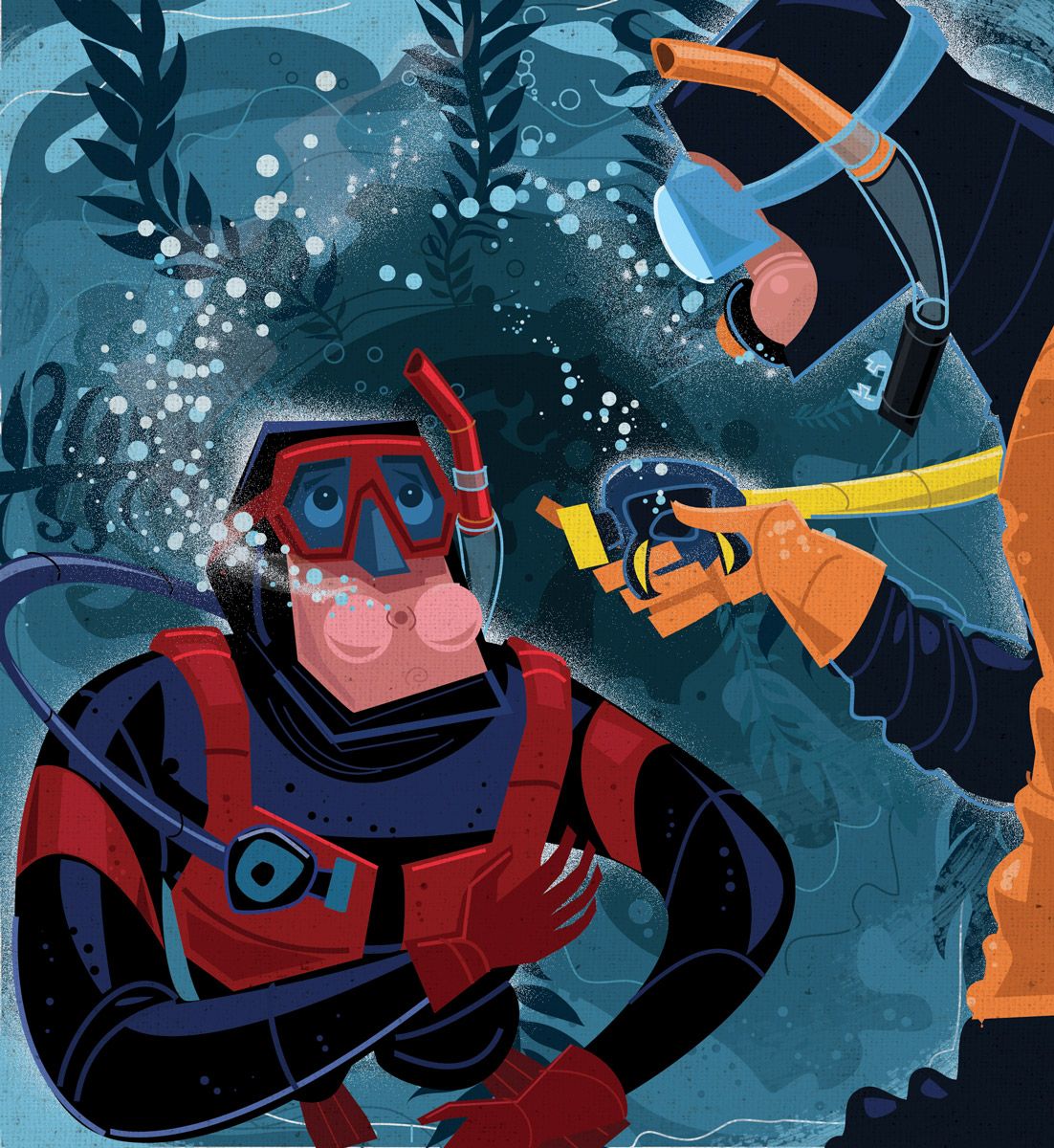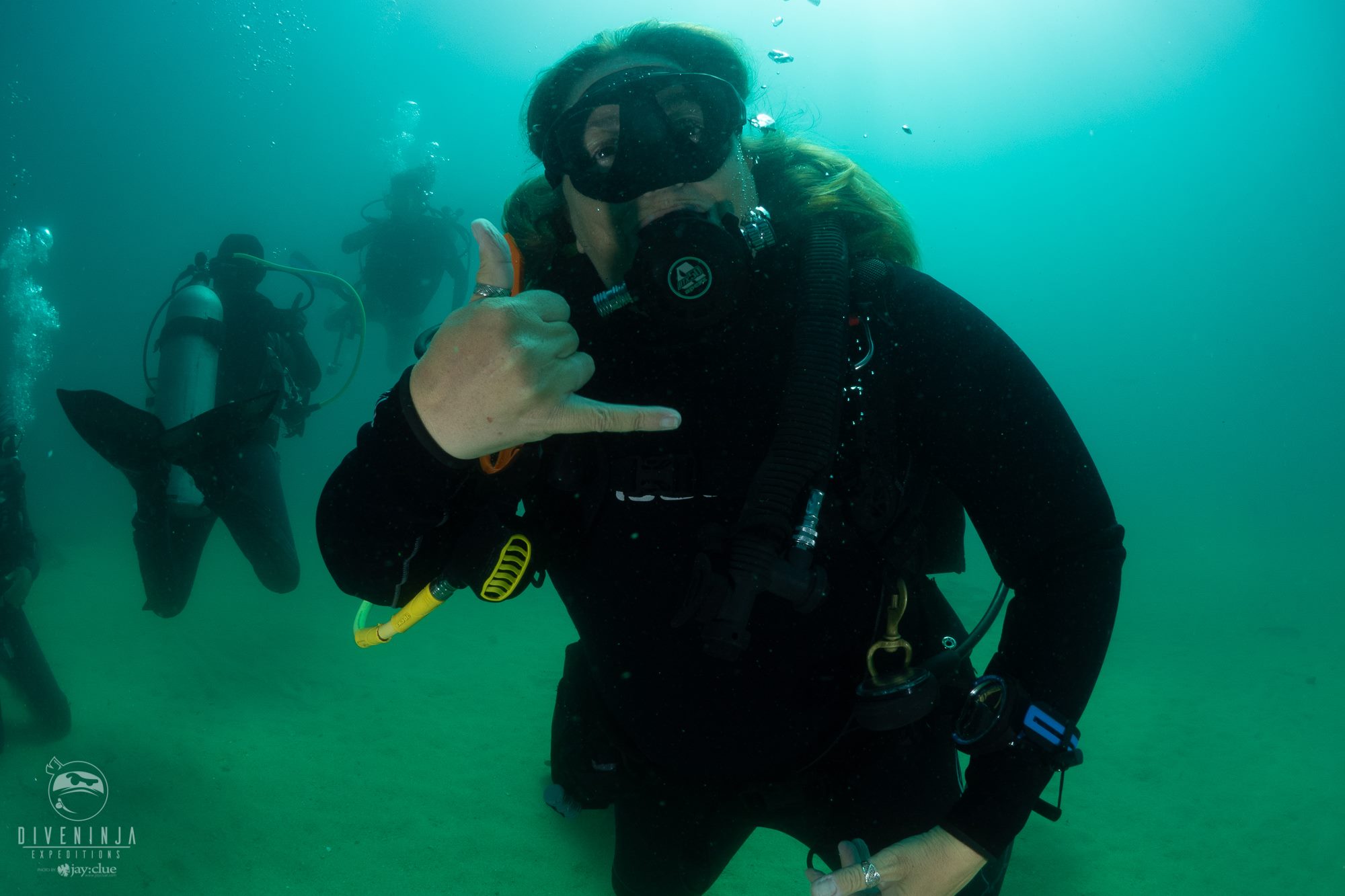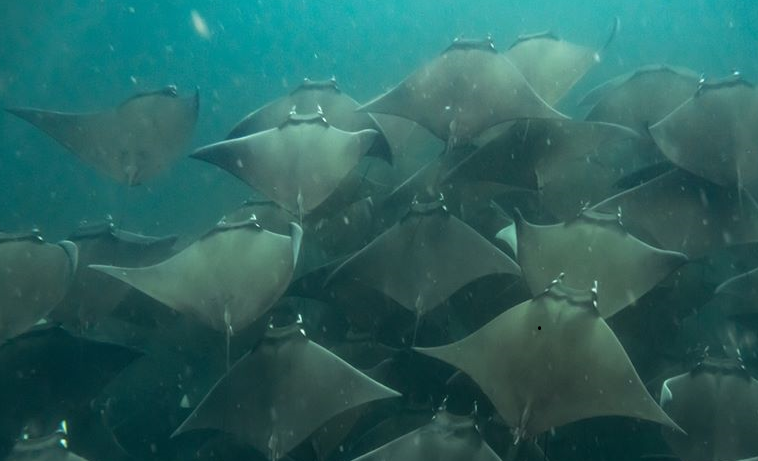Many circumstances led me to have no air at 70 feet. I have gone through it in my mind a thousand times. I considered I had become complacent. Or was the instructor?
My Certification
My cold water training took place in the PNW, which had many diving situations, drysuits, currents, and poor visibility. In the worst conditions, if I didn’t sense buddy’s fin kick, we had lost each other.
Currently, I hold a rescue diver certification with divemaster training. I am a self-assured diver with great air consumption and buoyancy. I NEVER am concerned about air! Usually, after most dives, I have 1500 Psi in my tank.
The Dive
On my first dive of the day, the water is crystal clear with a temperature of 86F with a maximum depth of 35ft for 65 minutes. My tank is at 1800 psi at the end of the dive. I even joked I didn’t need to switch tanks for the second dive.
Is this a premonition of what was to come?
The dive leader handed me a tank. After swapping out my BCD and Reg, I turned the tank on to check my air; I heard the telltale sign of a blown O-ring. I unscrewed my first stage and tried reattaching – the same thing happened. After experimenting with it by myself and others (no tools, O ring, or extra tank), the instructor got it to work.
On the first dive, I had trouble getting into the water; I have knee problems, and the boat is not set up to hold divers and equipment properly. I put my gear on in the water.
The pressure gauge becomes tangled in my BCD. I hurray perceiving I am holding up the group, and I am rushed and disarrayed. I proceeded to the decent point.
The leader gives the signal to descend.
I’m not descending. It’s like I am under-weighted. Checking my weight pockets to make sure I have clipped them in. I know the diving weight was sufficient. I was over-weighted on my first dive. There was not enough variety of weight sizes. And only four pounds to use. So I had about 4 pounds over my normal weight.
Out of Air
As I was struggling to get to the bow of the boat, the other two divers took off on their own in search of an octopus.
The rest of us did a brief swim through the boat, and my buoyancy is giving me trouble and I’m trying to stay off the roof. I exhaled ALL my air out of my lungs. I am looking forward to my next breath of air and nothing! No air!
I swapped my regulator for my octopus, expecting that I have a reg failure. Nope. Out of air!
Choices
Thank goodness for being trained for these situations throughout my certifications. My stress level is high and I need to decide between swimming up to the surface or finding an alternate air source. I opted for a buddy. I looked around me.
My options are; a newly certified diver or the instructor 20 ft away. I swam toward the dive leader.
Swimming and needing a breath of air, twenty feet can seem like a hundred! Grateful the water is calm and no current that day. Thank goodness it did not happen inside the wreck!
My lungs convulsed. They demanded air! I am desperate for a breath.
The Accent
I grasped his shoulder, turned him around, and grabbed his octopus. I took a breath and sucked in water. Unbeknownst to me, the octopus is upside down and stayed that way.
We ascended. The instructor looked at me and signaled okay; With a blink and nod of my head, I gave him the thumbs-up sign for let’s go up!
Sipping air like they have trained me for a free flow situation.
We receive training for this, hoping we never need to put it into practice. I kept sipping air and looking at my dive computer, wanting to reach the surface!
On the Surface
Reaching the surface felt like an eternity. In reality, it was only a couple of minutes.
The instructor said, “thanks for remaining calm,” I responded, “I didn’t realize I was calm.”
He said, didn’t you swap out your tank, I mentioned to him he helped me. Remember; you gave me the tank and helped with the O-ring?
He asked me if I wanted to swap tanks and go back down. I told him a resounded no. I am done diving for the day.
He continued on with his dive and go back to the new diver left alone. I climbed on the boat. I looked at my regulators and tank with the boat operator, and we both agreed the tank is empty.
After the dive
I put my gear away as I waited for the remaining divers.
After they returned, the instructor checked all the tanks. He could not identify a full tank!
The guide did not offer me a partial refund or take ownership of the incident by apologizing for giving me an empty tank. We found no full tanks on the boat. He schooled other divers to put the caps on an empty cylinder.
DAN
I returned to my hotel room, exhausted, and fell asleep for four hours. After I had woken up my chest was sore, and my mind reeled. Do I have DCS? I contacted my home dive shop and talked with a professional diver. She encouraged me to reach out to DAN (Divers Alert Network) to speak to a doctor about my experience. I held my breath at 70 ft; I didn’t blow bubbles! They train us in the very beginning. Never, ever hold your breath underwater!!
The physician at DAN didn’t find I had any DCS symptoms and told me to monitor for 24 hours.
My Part
I looked back at this dive and saw the errors I made. It is the first time I ever NOT checked my pressure gauge. I disrupted my routine right from the beginning. From the o-ring to the tangled hoses to getting ready in the water.
I’m spoiled in my hometown. The shop takes care of me very well. I trust the staff, as they all have thousands of hours of training and diving experience combined. My usual diving experience
What I have learned from this experience is that we all can make mistakes.
I will practice putting my gear on in the water. I will ask better questions; how long have you been diving? How long have you been an instructor? I will never take for granted that I have a full tank!



